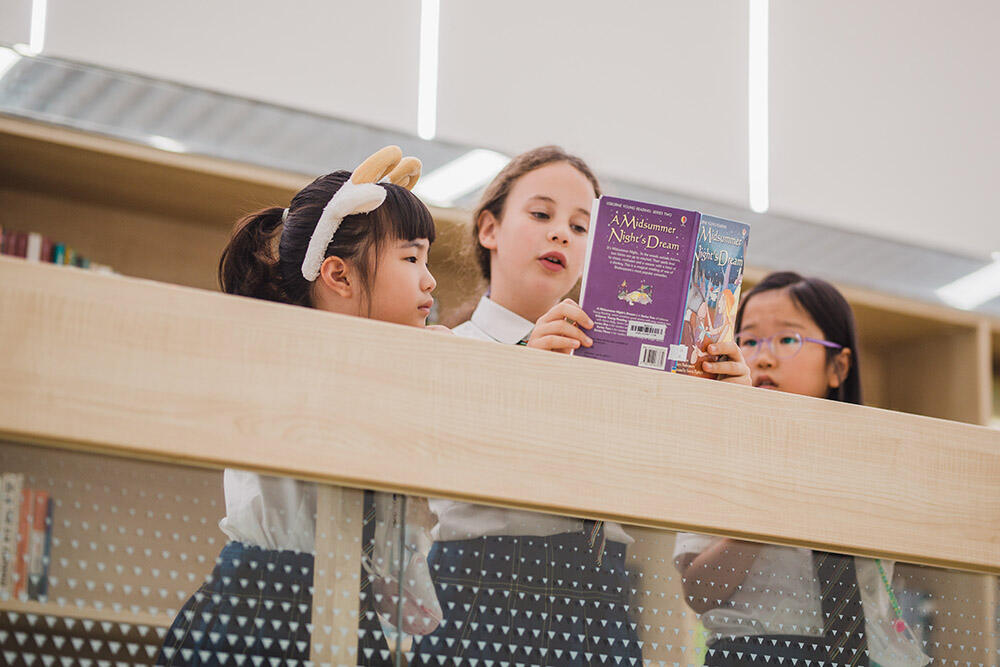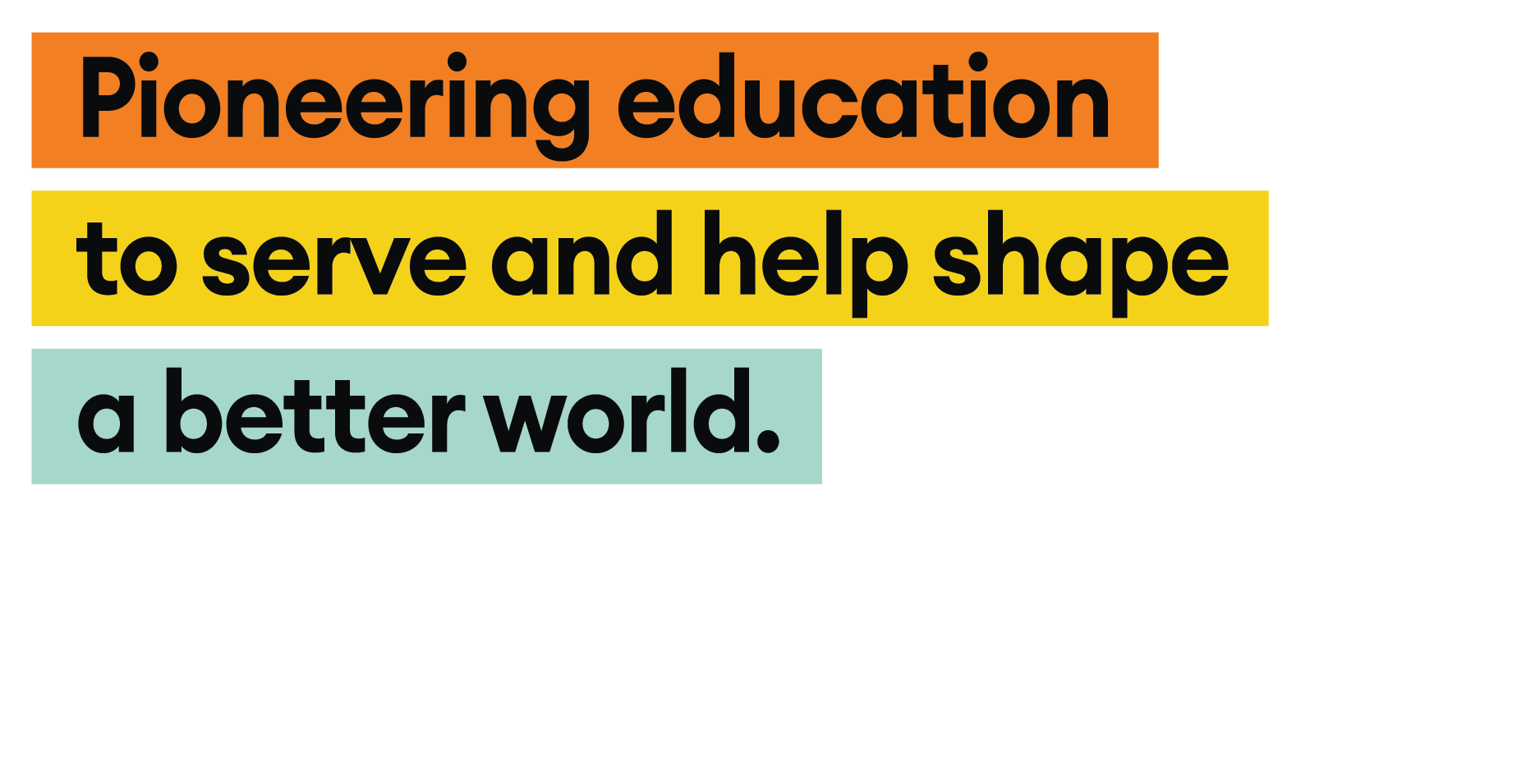The Week Ahead 15 November 2019
18 Nov 2019


From the Master 来自校长 마스터
Dear parents I read an interesting article on the development and success of phonics recently. Many of you will have children currently using phonics as part of the literacy programme in the Nest and Junior School. A study in 2005, from Scotland, showed that children in a phonics programme were seven months ahead of their expected age for reading and spelling. Few teaching methods, the article argued, were backed by such strong evidence as trials in phonics have shown. The reason I raise this now is that, whilst for the most affluent native speakers of English, the effect may wear off after time as they would eventually learn to read well anyway, for second language learners, phonics has proved a particularly significant boost. The head of early years at a charity which operates 38 schools in the UK said that “other approaches [to literacy learning] rely on existing child vocabulary and life experiences. Phonics helps to put children on a level playing field.” In other words, children who do not have the same linguistic and cultural opportunities as children in the UK, have the chance to learn to read and write at a similar pace to their peers in the UK through the use of sounds, rather than the traditional obsession with pronouncing entire words. This must be music to the ears of parents with children learning English as a second language. The next stage for the teaching of phonics is to make sure that the process remains varied and interesting to the learner. Phonics has, at times, been open to the criticism that it loses the magic of ‘real’ words and that reading can lose its power to enchant if broken down as scientifically as it is in a phonics class. I have been lucky enough to have visited a number of classes using our Read, Write, Inc. programme this term, and I have been struck by two things: the pace of the learning is exhilarating and the structure of the programme means that children of all ability groups are stimulated and challenged by the work. The progress we are seeing in classes is very encouraging, and I am sure you will see that reflected in the end of term reports. As we near the final month of the term, I would encourage all parents to find out more about phonics and how it will help your child to make accelerated progress in English acquisition. Listening to your child read each day, even though you may not be a confident speaker of English, helps that child to become more fluent in their spoken language as well as a faster, more accurate reader. The ‘levelling of the playing field’ that phonics encourages is never more obvious than when it can transfer successfully from the classroom to the home. Best wishes Julian Jeffrey MASTER

 French
Every Monday
8:45-10:00
MB125
Mrs Audrey Barthelemy
audrey.barthelemy18@gmail.com
Art
Every Friday
8:30-11:00
MB125
Mrs Markovic
ksenija.jakic@wellingtoncollege.cn
Mandarin
Every Tuesday
10:15-11:15
MB125
Mrs Yuan and Mrs Zhang
yizhang001@foxmail.com
EAL (Beginner level)
Every Tuesday of Week A
8:30-9:30
MB125
Mr Furse
David.Furse@wellingtoncollege.cn
EAL (Advanced level)
Every Thursday of Week B
8:30-9:30
MB125
Mr Furse
David.Furse@wellingtoncollege.cn
Pilates
Every Tuesday
8:45-10:00
Black Box
Mrs Stofkova
dstofkova@yahoo.com
How to use Chinese daily life Apps
Every Tuesday
13:00-14:00
MB113
Mrs Kim
donghong0904@naver.com
Pilates
Every Friday
8:45-10:00
Black Box
Mrs Stofkova
dstofkova@yahoo.com
Yoga
Every Wednesday
8:45-10:00
Black Box
Mrs Havlíková
havlikann@gmail.com
Yoga
Every Thursday
10:45-12:00
Black Box
Mrs Havlíková
havlikann@gmail.com
Traditional Chinese Medicine
Every Thursday
9:00-10:30
MB113
Mrs Markovic
ksenija.jakic@gmail.com
Notice: Any changes of time/date/venue please follow the notice according to the course organiser.
French
Every Monday
8:45-10:00
MB125
Mrs Audrey Barthelemy
audrey.barthelemy18@gmail.com
Art
Every Friday
8:30-11:00
MB125
Mrs Markovic
ksenija.jakic@wellingtoncollege.cn
Mandarin
Every Tuesday
10:15-11:15
MB125
Mrs Yuan and Mrs Zhang
yizhang001@foxmail.com
EAL (Beginner level)
Every Tuesday of Week A
8:30-9:30
MB125
Mr Furse
David.Furse@wellingtoncollege.cn
EAL (Advanced level)
Every Thursday of Week B
8:30-9:30
MB125
Mr Furse
David.Furse@wellingtoncollege.cn
Pilates
Every Tuesday
8:45-10:00
Black Box
Mrs Stofkova
dstofkova@yahoo.com
How to use Chinese daily life Apps
Every Tuesday
13:00-14:00
MB113
Mrs Kim
donghong0904@naver.com
Pilates
Every Friday
8:45-10:00
Black Box
Mrs Stofkova
dstofkova@yahoo.com
Yoga
Every Wednesday
8:45-10:00
Black Box
Mrs Havlíková
havlikann@gmail.com
Yoga
Every Thursday
10:45-12:00
Black Box
Mrs Havlíková
havlikann@gmail.com
Traditional Chinese Medicine
Every Thursday
9:00-10:30
MB113
Mrs Markovic
ksenija.jakic@gmail.com
Notice: Any changes of time/date/venue please follow the notice according to the course organiser.
Related Articles

The Week Ahead 22 November 201925 Nov 2019
From the Master 来自校长 마스터 Dear parents I met with a parent recently who, after almost four years in Tianjin, is relocating to her home country as a result of her husband’s recent promotion. I am alway
Read More

The Week Ahead 29 November 201902 Dec 2019
From the Master 来自校长 마스터 Dear parents There are not many activities in life which not only keep you fit, help you to relax and potentially help to save your life. Swimming is one such activity and as
Read More

The Week Ahead 6 December 201906 Dec 2019
From the Master 来自校长 마스터 Dear parents It will not have escaped your notice that the school is looking distinctly festive this week, as Christmas decorations have appeared across the estate. For many
Read More






 Channel
Channel 
 Linkedin
Linkedin  Facebook
Facebook  Ins
Ins 



